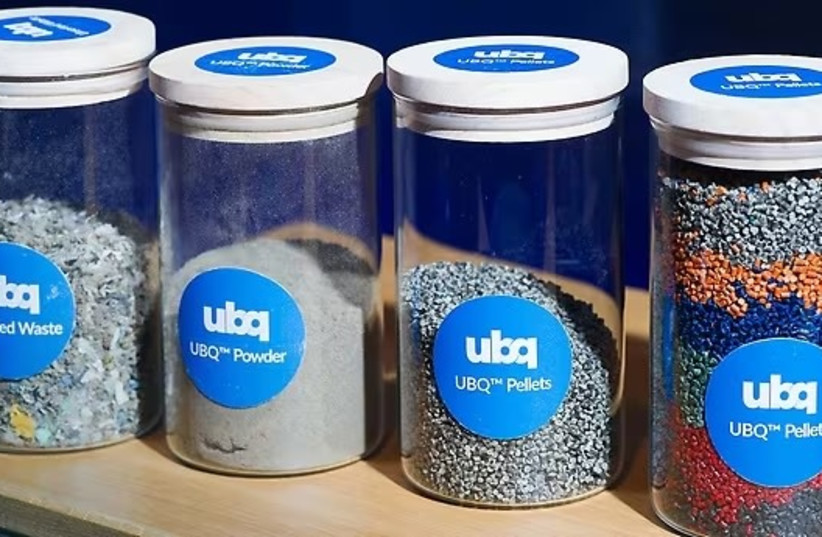Israeli climate-tech start-up UBQ Materials is tripling its workforce by hiring 140 full-time employees, 80 of whom will serve in operating roles at the company’s new lab and material production facility in the Netherlands.
The company’s technology converts unsorted household waste into post-consumer recycled thermoplastic, which can be used to manufacture a variety of durable products. The expansion represents a huge move toward the company’s goal of offering both growth and stability across blue- and white-collar careers in the burgeoning climate-tech industry.
“The manufacturing industry has an opportunity to positively impact the world by transitioning to a new standard of sustainable materials and becoming a driving force for the circular economy,” said Jack ‘Tato’ Bigio, Co-CEO and Co-founder of UBQ Materials.
What made UBQ Materials select this location?
The new facility, which will become operational in 2023, is located in the Dutch city of Bergen op Zoom, in the Brabant province. It is expected to produce up to 80,000 tons of UBQ per year, diverting 104,600 metric tons of annual waste.

“The Brabant region is well known for being at the forefront of innovation. We are inviting professionals to bring their knowledge and experience to UBQ and be part of the sustainable future of manufacturing,” Bigio added.
With the support of the municipality, UBQ’s industrial-scale facility and research & development lab will help transform the region into a clean tech hub.
Dominique Hopmans, Alderman of Economic Affairs in Bergen op Zoom, noted the value presented to the region by UBQ’s arrival.
“West Brabant wants to be a leader in the transition to the new economy. When it comes to the raw materials transition, UBQ is a prime example of a leader driving this transition, making the company a circular asset for Bergen op Zoom,” Hopmans said.
UBQ Materials works with global leaders across industries, including Mercedes Benz, PepsiCo, Anheuser Busch and McDonalds, providing its climate-positive material in place of conventional plastic to reduce the carbon footprint of supply chains and support the transition to a circular economy.
The company was selected as a member of Israel’s climate-tech delegation which attended COP27, the premiere UN climate conference, last year.
“COP is a crucial time for world leaders to map the next steps required to reach Paris Agreement goals. Efficient breakthrough technologies can bridge the time required for structural changes towards a circular economy,” said Bigio. “Our novel raw material tackles the global waste crisis and its associated methane emissions, bringing an endless new resource that is sustainable and climate positive. COP offers us the opportunity to empower governments and industry with circular solutions to a previously resource-depleting, unsustainable system.”
